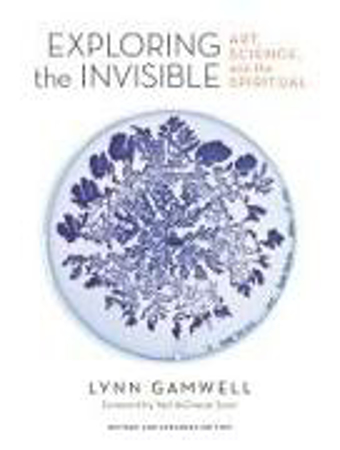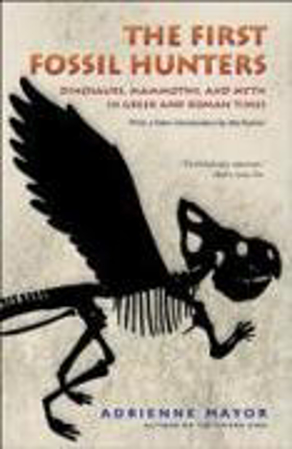- Gesamtkatalog
- zurück
- Bücher
- Buch Oasen
- Bücher in den Medien
- Lehrmittel
- Hörbücher
- Spiele
- Kalender
- E-Books / Audio-Downloads / Reader
- Themenwelten
- zurück
- Grusskarten
- Geschenkideen
- Toggenburger Naturseifen
- Schweizer Krimis
- die besten Reise und Erlebnisberichte
- Bücher zum Thema Bitcoin und andere Kryptowährungen
- Krimidinner
- ZMP
- Newsletter
- für grosse Spieler
- Bücher mit und über Esel
- Die schönsten Schmuckstücke für euer Bücherregal
- Bücher zum Thema Achtsamkeit und Mindfulness
- Die besten Bücher für ein erfolgreiches Home-Workout
- Zimmerpflanzen: Die besten Bücher für Ihren persönlichen Urban Jungle
- Häkeln und Stricken: Die besten Bücher zum Inspirieren
- Fasten - 40 Tage ohne: Wie uns Verzicht in allen Lebenslagen bereichern kann
- Bücher für ein perfektes Hochbeet
- Die besten Bücher für mehr Selbstliebe
- Buchtipps rund um Feminismus
- Neue Filme und Serien: Die besten Buchverfilmungen 2021
- Osterbücher und Spiele
- Bienen: Die besten Bücher über das liebenswerte Insekt
- Buch-Tipps für Ihren Selbstversorger-Garten
- Outdoor mit der ganzen Familie: Buch-Tipps für grosse und kleine Natur-Erforscher
- Velokarten Schweiz
- Die besten Bücher zum Thema Meinungsfreiheit
- 100. Geburtstag von Sophie Scholl: Die besten Bücher über die mutige Widerstandskämpferin
- Kulinarische Weltreise - Kochbücher aus der ganzen Welt
- Natur entdecken: Die besten Bücher über Flora & Fauna
- Bildhafte Reime, melodische Texte: die schönsten Reimbilderbücher
- klein aber fein
- kühle Lektüre
- Die besten Prepper Bücher
- 20 Jahre adhoc 20 Bestseller
- Tödliches Italien
- Grosser Büchertisch zum Thema Japan
- Ferienspiele: die besten für deine Familienferien
- Unsere Buchabteilungen und Fachgebiete
- Buch Neuerscheinungen
- Büchergutschein
- Kundenprogramme
- Profisuche
- Standorte
- Gesamtkatalog
- zurück
- Bücher
- Buch Oasen
- Bücher in den Medien
- Lehrmittel
- Hörbücher
- Spiele
- Kalender
- E-Books / Audio-Downloads / Reader
- Themenwelten
- zurück
- Grusskarten
- Geschenkideen
- Toggenburger Naturseifen
- Schweizer Krimis
- die besten Reise und Erlebnisberichte
- Bücher zum Thema Bitcoin und andere Kryptowährungen
- Krimidinner
- ZMP
- Newsletter
- für grosse Spieler
- Bücher mit und über Esel
- Die schönsten Schmuckstücke für euer Bücherregal
- Bücher zum Thema Achtsamkeit und Mindfulness
- Die besten Bücher für ein erfolgreiches Home-Workout
- Zimmerpflanzen: Die besten Bücher für Ihren persönlichen Urban Jungle
- Häkeln und Stricken: Die besten Bücher zum Inspirieren
- Fasten - 40 Tage ohne: Wie uns Verzicht in allen Lebenslagen bereichern kann
- Bücher für ein perfektes Hochbeet
- Die besten Bücher für mehr Selbstliebe
- Buchtipps rund um Feminismus
- Neue Filme und Serien: Die besten Buchverfilmungen 2021
- Osterbücher und Spiele
- Bienen: Die besten Bücher über das liebenswerte Insekt
- Buch-Tipps für Ihren Selbstversorger-Garten
- Outdoor mit der ganzen Familie: Buch-Tipps für grosse und kleine Natur-Erforscher
- Velokarten Schweiz
- Die besten Bücher zum Thema Meinungsfreiheit
- 100. Geburtstag von Sophie Scholl: Die besten Bücher über die mutige Widerstandskämpferin
- Kulinarische Weltreise - Kochbücher aus der ganzen Welt
- Natur entdecken: Die besten Bücher über Flora & Fauna
- Bildhafte Reime, melodische Texte: die schönsten Reimbilderbücher
- klein aber fein
- kühle Lektüre
- Die besten Prepper Bücher
- 20 Jahre adhoc 20 Bestseller
- Tödliches Italien
- Grosser Büchertisch zum Thema Japan
- Ferienspiele: die besten für deine Familienferien
- Unsere Buchabteilungen und Fachgebiete
- Buch Neuerscheinungen
- Büchergutschein
- Kundenprogramme
- Profisuche
- Standorte
Princeton University Press
Exploring the Invisible shows how modern art expresses the first secular, scientific worldview in human history. Now fully revised and expanded, this richly illustrated book describes two hundred years of scientific discoveries that inspired French Impressionist painters and Art Nouveau architects, as well as Surrealists in Europe, Latin America, and Japan. Lynn Gamwell describes how the microscope and telescope expanded the artist's vision into realms unseen by the naked eye. In the nineteenth century, a strange and exciting world came into focus, one of microorganisms in a drop of water and spiral nebulas in the night sky. The world is also filled with forces that are truly unobservable, known only indirectly by their effects--radio waves, X-rays, and sound-waves. Gamwell shows how artists developed the pivotal style of modernism--abstract, non-objective art--to symbolize these unseen worlds. Starting in Germany with Romanticism and ending with international contemporary art, she traces the development of the visual arts as an expression of the scientific worldview in which humankind is part of a natural web of dynamic forces without predetermined purpose or meaning. Gamwell reveals how artists give nature meaning by portraying it as mysterious, dangerous, or beautiful.
- april 23 (neue bücher)
- april 24 (neue bücher)
- august 2024 (neue bücher)
- august 23 (neue bücher)
- januar 24 (neue bücher)
- juli 23 (neue bücher)
- juni 23 (neue bücher)
- mai 2024 (neue bücher)
- märz 23 (neue bücher)
- märz 24 (neue bücher)
- november 23 (neue bücher)
- oktober 23 (neue bücher)
- september 23 (neue bücher)
- srf kultur: buchzeichen
- srf kultur: kultur kompakt
- 071 911 68 38
- Mo.-Fr. 09.00 - 18.30 Uhr Sa. 09.00 - 17.00 Uhr So. geschlossen
- mail@mybooks.ch
- 9500 Wil (SG)
- Obere Bahnhofstrasse 51




















